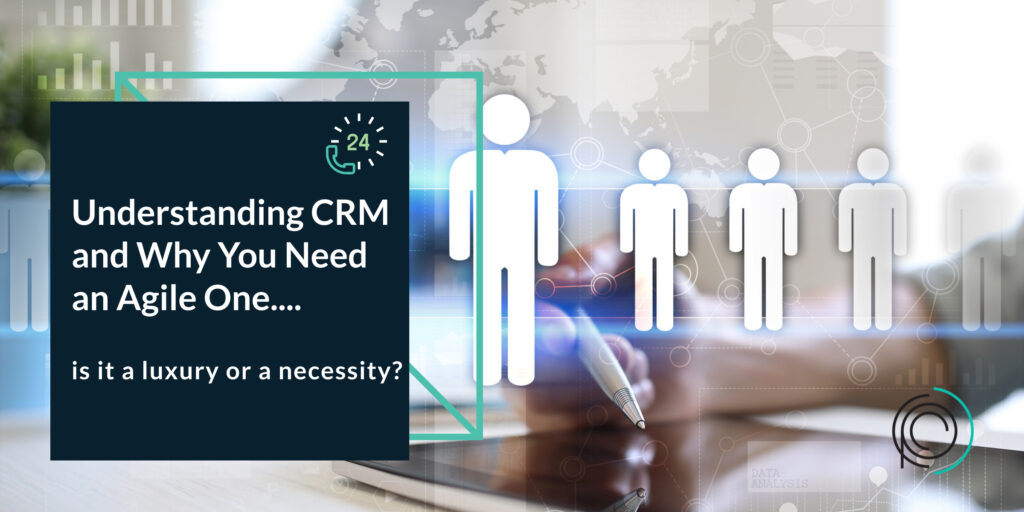Customer Relationship Management (CRM) is far from being a novel concept. For decades, it has played an indispensable role in assisting companies with the management of customer interactions. This management tool has been pivotal in helping businesses streamline their operations, enhance overall efficiency, and significantly improve customer satisfaction. The origins of CRM can be traced back to the early days of business computing, with simple database systems designed to hold and manage customer information. However, over the years, CRM technologies have undergone significant transformations, evolving from basic information repositories to complex systems that are integral to strategic business operations..
Today, CRM systems have evolved into highly sophisticated platforms capable of tracking detailed customer behavior across multiple touchpoints. They automate complex sales and marketing processes, thereby enabling businesses to operate more efficiently and effectively. Moreover, these systems empower businesses to make informed, data-driven decisions by providing comprehensive analytics on customer interactions, sales trends, and marketing effectiveness. The evolution of CRM has been particularly marked by the integration of advanced technologies such as artificial intelligence (AI) and machine learning. These technologies have enabled CRM systems to offer a more personalized and engaging customer experience, predict customer needs, and facilitate proactive engagement strategies.
In this detailed guide, I’ll delve deeper into the intricacies of what a CRM is, its development over time, and how its evolution has mirrored broader technological advances in the business world. Furthermore, I’ll explore the compelling reasons why your business would greatly benefit from implementing an agile CRM system. Agile CRMs offer flexibility, adaptability, and scalability, which are crucial attributes in today’s fast-paced business environment. By the end of this guide, you will have a thorough understanding of how a modern CRM system can be a game-changer for your business, driving growth, enhancing customer loyalty, and securing a competitive edge in your industry.
What is CRM?
Customer Relationship Management (CRM) software is a sophisticated tool that assists businesses in managing and analyzing customer interactions and data throughout the customer lifecycle. Its primary goal is to improve business relationships with customers, aid in customer retention, and drive sales growth. CRM systems are designed to compile information from a variety of channels, including the company’s website, telephone, email, live chat, marketing materials, and more recently, social media. They enable businesses to store a vast array of customer information such as contact details, purchase history, and previous interactions with customer service, all in one place. This data is crucial as it provides a comprehensive view of each customer, thereby enabling personalized and efficient interactions.
Furthermore, CRM systems offer tools for managing sales processes, marketing campaigns, and customer support. They help in organizing, automating, and synchronizing sales, marketing, customer service, and technical support. For instance, they can automate repetitive tasks like sending follow-up emails, scheduling sales meetings, and tracking the status of open customer issues. This automation significantly increases efficiency and allows sales and customer service teams to focus more on creating meaningful interactions rather than administrative tasks.
In addition to operational efficiencies, CRM software can analyze customer data and generate insights into customer behavior, preferences, and needs. This analysis helps businesses identify potential areas for growth, develop targeted marketing strategies, and create personalized offers that enhance the customer experience. Ultimately, by making data-driven decisions, businesses can better meet the needs of their customers and build stronger, more profitable relationships.
In summary, CRM is an indispensable tool for modern businesses, providing the infrastructure needed to manage customer information, streamline business processes, and enhance the customer experience, all of which contribute to increased sales and customer loyalty.
Why Do You Need an Agile CRM?
An agile CRM system offers unparalleled flexibility, scalability, and customizability, making it an invaluable tool for businesses looking to thrive in today’s ever-changing market landscape. This dynamic system enables organizations to swiftly adapt to evolving market conditions, shifting customer needs, and alterations in internal processes, ensuring they remain at the forefront of their industry.
Moreover, an agile CRM facilitates a more immediate and effective response to customer inquiries and demands, significantly enhancing customer satisfaction and loyalty. By fostering improved collaboration among teams, as illustrated in this insightful article on boosting employee engagement, it helps break down silos within organizations, promoting a more unified and productive work environment. Streamlined workflows are another major benefit, allowing for the efficient execution of tasks and projects.
Additionally, the implementation of an agile CRM provides businesses with access to real-time data and analytics. This capability is crucial for making informed, data-driven decisions swiftly, enabling companies to leverage current trends, anticipate market shifts, and adjust strategies proactively to maintain a competitive edge.
Benefits of Agile CRM:
Implementing an Agile CRM system can revolutionize the way businesses interact with their customers and manage internal processes, offering a plethora of advantages:
- Improved Customer Experience: By adopting an Agile approach, companies can significantly enhance the personalization of customer interactions, respond more swiftly to inquiries, and proactively anticipate the needs of their customers. This leads to a more satisfying and engaging customer experience, fostering loyalty and positive word-of-mouth.
- Increased Sales: Agile CRM tools empower businesses to automate and optimize their sales processes efficiently. By tracking every interaction with customers, these systems provide in-depth insights into customer preferences and behaviors, enabling tailored marketing strategies that can significantly boost sales figures.
- Streamlined Workflows: One of the standout features of Agile CRM is its ability to streamline operational workflows. This not only reduces the propensity for errors but also enhances the efficiency of team collaboration. By simplifying processes, teams can focus more on strategic tasks rather than being bogged down by administrative burdens.
- Faster Decision Making: The real-time data and analytics provided by Agile CRM systems are invaluable for businesses. They furnish leaders with the insights needed to make informed, data-driven decisions swiftly. This agility in decision-making ensures that businesses can stay ahead of market trends and respond effectively to any emerging challenges.
- Scalability: As businesses grow, their needs evolve. Agile CRM platforms are designed with scalability in mind, enabling companies to seamlessly adjust their features and capabilities to match their current requirements. Whether it’s expanding the customer base, entering new markets, or adjusting to new business models, an Agile CRM can adapt to the changing landscape.
In conclusion, integrating an Agile CRM into a business’s strategy not only improves operational efficiency and customer satisfaction but also positions the company for sustainable growth and competitive advantage in the marketplace.
Choosing the Right CRM:
Selecting the perfect Customer Relationship Management (CRM) system can often feel overwhelming. With a myriad of options available, various factors need careful consideration to make the right choice. These factors include the size of your business, the anticipated number of users, the specific features you need, the implementation timeline, and of course, the budget constraints. The last thing any business wants is to allocate a significant portion of its resources—both time and money—to a CRM that doesn’t fit its needs.
A crucial aspect to consider is the user-friendliness of the CRM. It’s vital to select a system that not only your sales team but also your marketing, customer service, and IT departments can easily navigate. Customization and flexibility are also key; your CRM should adapt to your business processes and not the other way around. Moreover, integration capabilities cannot be overlooked. A CRM that seamlessly integrates with other key software solutions your business uses, such as marketing automation tools, telephony systems, calendars, accounts payable and receivable software, and e-commerce platforms, can significantly enhance efficiency and productivity.
The reality is that having a CRM system is no longer just an added benefit; it has become an integral component for businesses aiming to meticulously track and manage customer interactions. A well-chosen CRM can substantially enhance the customer experience, boost sales, and empower your team to make informed, data-driven decisions swiftly. It fosters improved collaboration among teams, streamlines complex workflows, and ensures your business can scale effortlessly to meet growing demands.
In today’s competitive market landscape, if your business has yet to implement a CRM system, now is the crucial time to begin your search. Exploring your options thoroughly will ensure you select a CRM that not only meets your current requirements but also possesses the capability to grow with your business. Remember, the right CRM is out there; it’s just a matter of identifying it and making an informed decision that aligns with your strategic goals.
Why are we focusing on agile CRM systems, you might wonder? The reason is simple: we are a certified Creatio partner, experts in offering solutions that bring agility and efficiency to your business processes. Agile CRMs, especially the ones we work with, are not just about managing customer relationships; they’re about transforming your entire approach to customer engagement and business management. If you’re interested in exploring the most agile CRM available on the market, which can revolutionize how you connect with your customers and streamline your operations, we invite you to book a consultation with us today. Let’s discuss how we can tailor the perfect CRM solution to fit your unique business needs.







